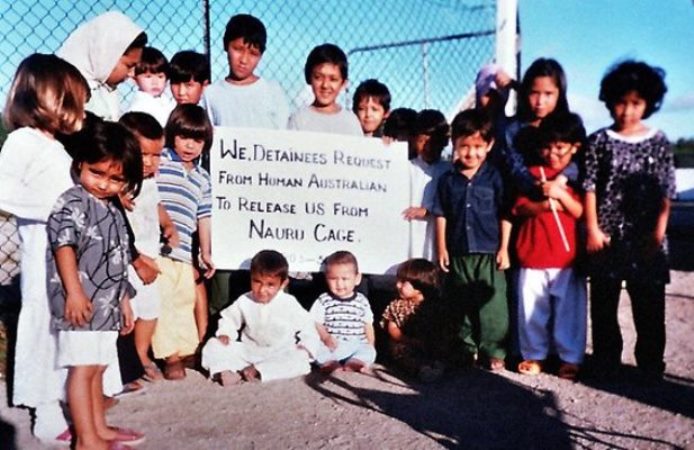
AUCKLAND (Pacific Media Watch / Radio New Zealand International / The Guardian): Australia's deportation camps are back in the news again with Amnesty International now reportedly banned from visiting the Nauru detention centre.
Radio New Zealand InternationaI reported today that the Nauru government had refused Amnesty's request to visit Nauru. This is just days after The Guardian reported allegations that Nauru guards had been physically abusing children detained there, including hitting a young girl on the back of the head so hard that she collapsed.
The owner of the land on Manus Island, which houses Australia's other deportation centre in Papua New Guinea, has also hit out at the Australian government, saying he "regrets" ever agreeing to have a deportation centre built on his land.
RNZI reported that landowner Porou Papi thought he would have more control over the project but instead, has to "stay in the village and you watch what is happening right in front of you". The deportation centre was not bringing much economic benefit to PNG businesspeople as "everything" including food, was bought from Australia.
Boomerang aid
"We call it 'boomerang aid'. They come here and then they took the cash back to Australia. It doesn't make sense to us," Papi told RNZI.
He said he was also upset about the way the Manus Island asylum seekers were being treated, because he had been told that asylum seekers would be helped to find homes but instead were treated like criminals.
"Sorry to say this but, I mean...poor people. They have no freedom to me. I've been there and I saw it. I mean, the word 'detention' is what? Detaining what? Criminals?
"What do we have to detain them for? We Manus people love to look after people, not detain them. They are asylum seekers. They come here, you process them and then you find where they are supposed to go and that's it," he told RNZI.
Laws breached
Meanwhile Monash University's Castan Centre for Human Rights Law today released a report saying that the Australian government had breached seven international laws with its involvement in the Nauru and Manus Island deportation centres.
The detention of children on Nauru was very alarming. Asylum seekers were "punished more every year", the report's author, Dr Azadeh Dastyari said.
The centre was concerned that "some refugees may be returned to persecution in violation of Australia’s obligation under the Refugee Convention".
The Australian government was racially profiling Sri Lankan asylum seekers who were "not told of their rights and are denied legal assistance. They are ‘screened out’ and deported if immigration officials determine their claims to be remote, unfounded or insufficient".
Australia's "cruel system" had been ‘exported’ to Nauru and Papua New Guinea (PNG) where asylum seekers were dumped but barred from having their detention reviewed by the courts of Nauru or PNG. The asylum seekers were left there indefinitely and prevented from being reunited with their families.
"Such a system clearly violates the prohibition against arbitrary detention and the right to be brought before a court," the report said.
The Australian government was not allowed to punish refugees for their mode of arrival, but continued to discriminate against anyone who arrived by boat, Dr Dastyari added.
The report called on the Australian government to process all asylum seekers in Australia.
The 2014 Castan Centre Human Rights report
This work is licensed under a Creative Commons Attribution-NonCommercial 3.0 New Zealand Licence.




